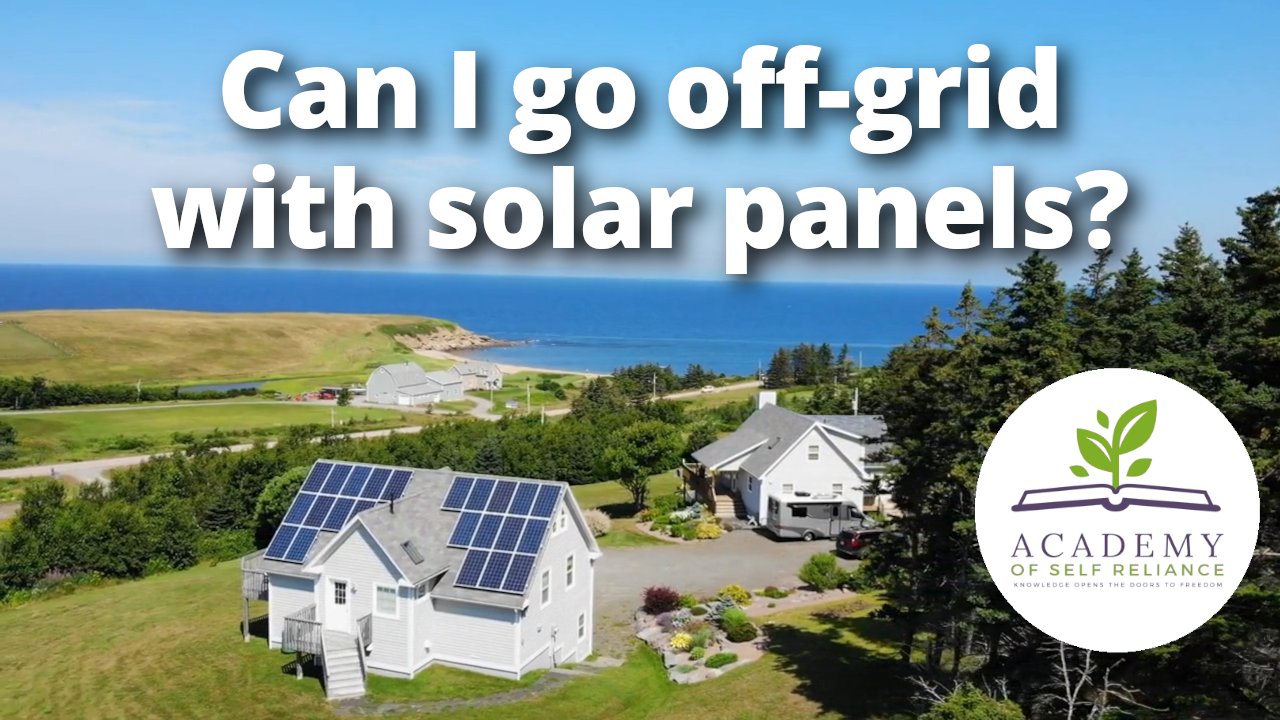Can I go off-grid with solar panels?
Yes, you absolutely can go off-grid with solar panels. In fact, you’d be crazy not to! In this post, I’ll break down the basics of going off-grid with solar panels, including what you’ll need, the pros and cons, and some tips for success.
Summary
Power Needs: Determining your power needs by assessing your daily energy consumption and taking into account future plans, consulting with a professional to ensure the right fit for your specific needs and location, and having the power to live off-grid and be free from the grid’s dependence.
Benefits of Solar: Cost savings, insulated from rate hikes, environmentally friendly option, reducing carbon footprint, gaining independence from the traditional power grid, less vulnerable to power outages, and having peace of mind.
Downsides: Initial investment can be significant, ongoing maintenance and upkeep can be time-consuming and costly, and regular maintenance is necessary to keep the system running efficiently.
Power Needs
Determining your power needs is the first step in going off-grid with solar panels. This involves assessing your daily energy consumption in terms of the watts and amps your household needs. To do this, you’ll need to keep track of your energy usage over a period of time and look at your energy bills to get an idea of how much electricity you consume on a daily, weekly, or monthly basis. Additionally, you’ll need to take into account any future plans or changes such as an addition of appliances or electric vehicle charging.
Once you have a good understanding of your power requirements, you can move on to selecting the solar panel system that will best meet those needs. This includes not only the size of the system, but also the type of solar panels, the number of batteries, and any other components that may be required. You can use your power needs as a guideline to select the right system for you. However, it’s important to consult with a professional to ensure that the system you choose is the right fit for your specific needs and location. With a system that fits your needs, you’ll have the power to live off-grid and be free from the grid’s dependence.
Benefits of Solar
When it comes to the pros of going off-grid with solar panels, the biggest benefit is the cost savings. You will no longer have to pay for electricity from your utility company, which means you will save money on your monthly bills. Additionally, by generating your own electricity, you will be insulated from rate hikes that your utility company might implement in the future.
Another advantage of going off-grid with solar panels is that it is a more environmentally friendly option. Solar power is a renewable energy source, and by using it, you will be doing your part to reduce your carbon footprint. By not relying on fossil fuels for your electricity, you will be helping to reduce the amount of greenhouse gases that are emitted into the atmosphere.
Going off-grid with solar panels also means gaining independence from the traditional power grid. You will no longer be dependent on the availability and reliability of the traditional power grid. With your own solar power system, you will have the ability to generate your own electricity, making you less vulnerable to power outages caused by natural or man-made disasters, storms, tornadoes or other issues with the traditional power grid. You will have the peace of mind knowing that you have a reliable source of power and won’t have to depend on anyone else. This independence is one of the most attractive benefits of going off-grid with solar panels.
Downsides
Of course, there are also some cons to consider when it comes to living off-grid with solar panels. One of the biggest is the initial investment. Solar panel systems can be quite expensive to purchase and install, especially if you are planning on powering your entire home. This can be a significant financial burden for some people. However, it is important to remember that this initial investment will pay off in the long run as you will save money on your electricity bills.
Another con to consider is the ongoing maintenance and upkeep of your solar panel system. In order to maintain your off-grid lifestyle, you will need to make sure that your solar panel system is installed correctly and that you regularly maintain it to keep it running efficiently. This means that you will need to regularly check and clean your panels, as well as ensure that your battery storage and inverter are in good working condition. This ongoing maintenance can be time-consuming and costly. But it’s important to remember that regular maintenance will help ensure that your solar panel system continues to function properly and that you can continue to enjoy the benefits of living off-grid.
Conclusion
Going off-grid with solar panels is a great way to save money on electricity, decrease your dependency on city systems, and reduce your carbon footprint, but it’s not without its challenges. Before taking the plunge, make sure you understand your power needs and have a plan in place for maintaining your solar panel system.



